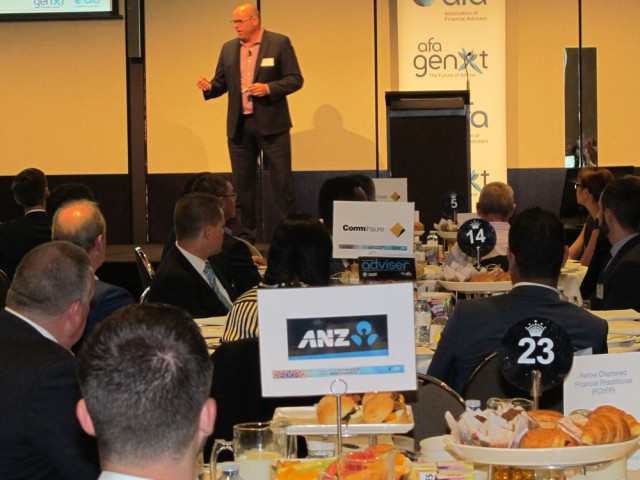There is little doubt the Life Insurance Framework will impact many risk advice businesses but how deep that impact goes is something that can be controlled, according to Sue Viskovic. As Sue writes, advisers are not powerless in controlling what will happen to their practice once the new framework begins and asks a number of questions examining where advisers, as business owners, are at in preparing for LIF. Importantly, the questions have a call to action since sticking with the status quo is unlikely to add long term value to any advice business.
Speaking with advisers at the moment, we are seeing that the current environment has split them into roughly three groups. There are those who are spending a lot of their waking hours anxiously thinking through how (and if) they will continue to grow their business in the future of advice. Dangerously, there are many who are ignoring the LIF and thinking that they’ll worry about it when commissions get down to 60%, and then of course, there are those who are already taking steps to re-engineer their business to cope with the LIF.
It’s understandable that we have those in the first two camps. When you’re running a business that isn’t performing as well as you’d like, or perhaps something outside your control (like LIF) is about to throw it off course, it can feel overwhelming. Even before you get the opportunity to make decisions about it, your head starts to swirl with all of the possibilities and the unknowns, and before you know it, you are feeling anxious, nervous, even angry. While your heart and head are in those places, it’s very difficult to evoke rational thought to work out your plan of what to do, and even harder to then start implementing the ‘stuff’ you need to do to improve your business.
If you think the LIF changes have just been about reducing costs for insurers you’re wrong…they were also motivated (at least that’s what the policy makers tell us) by consumer expectations and bad adviser habits and culture
It doesn’t help either when you have a constant noise of differing opinions on the impact of the LIF and how to cope with it. I’ve heard some say that risk advisers just need to get two more deals a month for the next three years to replace the cashflow they’re losing from the reduced insurance commissions. I say N.O. to that…. why work harder, when working smarter is much more fun and will build a more sustainable business?
If you think the LIF changes have just been about reducing costs for insurers you’re wrong…they were also motivated (at least that’s what the policy makers tell us) by consumer expectations and bad adviser habits and culture. We already know that the reforms will be reviewed in two years and if they haven’t achieved the ‘behavioural change’ the government is seeking, what then? There’s a very real possibility that the FSI recommendations will be implemented instead and commissions will be reduced even further to level only (at 20%!). Will that mean you then need to get eight new clients a month?
Before banking your entire future on a fantasy that the LIF will cause the underinsurance problem to worsen and government (and insurers) will be forced to reinstate commissions because insurance needs to be sold and sales people need to be motivated to get out there and sell it or there’ll be too much strain on the public purse…. consider for a moment… what if ‘insurance salespeople’ share the public perception of a taxi driver, and the LIF is Uber? What if the rest of the world (and therefore government) thinks you just want to keep the status quo of commissions so you don’t need to improve your services? I know better than most, that the public perception of an ‘insurance salesperson’ has very little correlation to the reality of the quality work of professional risk specialists that I see changing their clients lives every day, but most consumers (and legislators) don’t see you through my eyes. It’s time to combat that by thinking like a business owner, and not just an insurance salesperson.
This idea of just winning more business is not a new concept brought about by the LIF – I’ve heard a similar sentiment from many advisers over the years…. “I just want to grow my revenue/profit/etc – if I could just find more clients, my problems would be solved”. Yet, that’s rarely the best solution! Before you get on the phone to your favourite referrers and rev them up; take a moment to ask yourself these questions:
What types of clients do I really want? Am I clear on the value proposition I can deliver them? Will that proposition make a real difference in their lives – so much so that they won’t just increase my income this year, they will happily continue to stay engaged with my firm for the next decade or more? (Whether that is by paying my retainer, or keeping their insurance portfolio and not making changes to it without my consultation)? Compound, recurring growth is what we’re after here – and that isn’t as easy to come by as when we could collect a trail commission from whatever product we sold to them.
When I get those client enquiries, do I have a robust onboarding process? Is that process consistent in its’ ability to not only wow them, it will also enable me to form the foundation of a long-term relationship with them AND enable me to provide outstanding advice that will absolutely add value to their life? Or do I rely on my people skills to have a good chat, gather their financial data and then present an SOA in the second meeting?
Is that onboarding process automated as much as possible? Do my staff manage that process in a consistent way? In doing so, does that process allow me to do what I do best while delivering admin-related services cost-effectively? Does it also ensure every new client gets a consistent experience and the process is not kept in the head of my experienced staff but we document the collective experience so we can all leverage from it?
Do I maximise our time together by providing education/support/homework they can do in their own time between our meetings? Have I leveraged my time and knowledge by converting my standardised explanations of concepts into web pages/flyers/videos that we send to them?
Have I done the work to price my services well, so that each new client is profitable and doesn’t get scared off by my fee (if indeed I’ve decided to subsidise or replace commissions with a fee)?
You probably already know that the results you experience from your business are an outcome of the actions and behaviours of you and your staff
Do I have my back office sorted so that we can handle the increased workload effectively – I can scale up without having to spend all my new income on new staff and business overheads?
If you answer no to more than two of these questions, you would be better spending the time and effort on fixing these things before you start trying to find more new clients. Before you spend money on marketing, or just employing a new team member because everyone says they’re too busy, maybe invest that money and spend some time with a reputable consultant who can help you refine your business, and achieve your growth sustainably!
Work smarter rather than harder and you’ll find that you’ll not only enjoy your days more (we often see advisers get a whole new lease on life – more energy, more fun and a more balanced life overall), you’ll also obtain that growth you’re seeking. If you don’t have the desire or ability to invest in a consultant, at the very least, invest your time, in a structured, focused way to reflect on these issues and make some decisions and action plans. If you have access to a PDM or BDM who can help you work through the process, reach out for their help.
You probably already know that the results you experience from your business are an outcome of the actions and behaviours of you and your staff. Yes, there are outside factors that will influence your success, but the real essence of success (and many would also say happiness) is to focus on the things you can control – the decisions you make and the actions you take.
Unfortunately it is so easy to get caught up being busy and forget to take the time to reflect not only on what you’re doing, but how you’re doing it. Whether it be in business or in our personal lives, we humans share significant traits. We know that so much of our actions are habitual, and very often are not done consciously, so it makes perfect sense that when we bring our awareness to those habits and tweak them – whether that be slightly or monumentally, we can remove disruptive patterns and start new practices that will deliver us more of the results we want.
Be smart about it….do it efficiently – odds are you’re going to still need to see clients and keep working in your business while you do the renovation. And also recognise that it’s important to take the time you need to get your head committed to the process. Once you’ve made the decision that you’re ready to move forward, waste no time in seeking out the right counsel and following the best process to analyse what you’re currently doing in order to do it better.
One final thought….a funny thing happens to a lot of our clients (and others we speak to) when they make big decisions about changing a fundamental aspect of their business – say, the way they get paid, or the way they educate their clients about various concepts.
“What will my clients think when I make this change – am I saying that I’ve been doing it badly/wrong up until now?” It’s a very natural thought to have, and when they process the thought, they realise that their clients actually expect it of them. Their clients have an adviser because they are on top of their game – their adviser knows more about the evolving financial landscape and how to manage their risks and/or their finances than they themselves do.
rather than taking the LIF on the chin, ignoring it and hoping it will go away, or just deciding to write two new deals a month, take this opportunity to look at your business with fresh eyes
While they’re busy running their household or their business, living their life and focusing on what they’re good at, they expect that the people they outsource their financial security to, will be aware of advancements and innovations that may improve the client’s position. They have an expectation that they won’t jump at the latest fad, but they will take a measured approach to innovation, and just as they would expect the adviser to recommend a new product solution if one comes along that better suits their needs, so too would they expect them to employ a new business model or strategy if one becomes available.
So rather than taking the LIF on the chin, ignoring it and hoping it will go away, or just deciding to write two new deals a month, take this opportunity to look at your business with fresh eyes and implement your ideas to obtain a sustainable future.

In Practice Management, Elixir Consulting shares strategies for building better advice businesses.
Sue Viskovic is the Managing Director and founder of Elixir Consulting, a specialist consulting and coaching firm that is dedicated to helping financial advisers and risk specialists to get their businesses performing better.
Contact or follow the author: Website | Twitter | Facebook | YouTube













